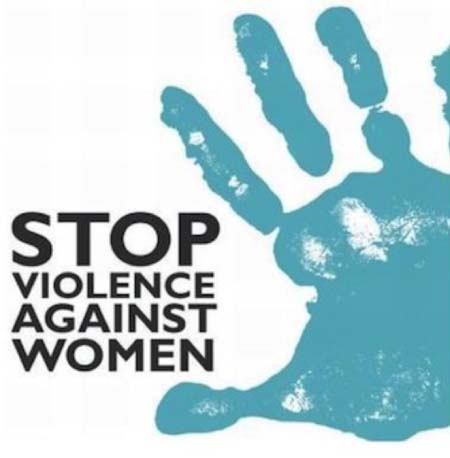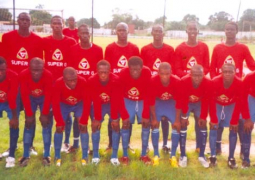
The committee noted with concern that there have been no prosecutions under the Trafficking in Persons Act 2007 and that only one investigation is currently ongoing.
It is also concerned about the lack of information on the number of victims of trafficking and on the measures taken to address exploitation of prostitution of women and girls and child sex tourism, as well as about the lack of programmes to support women wishing to leave prostitution.
Recommendations:
The committee recommends that the State party: Conduct a study to investigate the extent and root causes of trafficking in women and girls and exploitation of prostitution; Effectively implement the Trafficking in Persons Act, including by allocating adequate resources, ensure early identification and referral of victims of trafficking, prosecute and adequately punish perpetrators, and provide free legal and psychological support and compensation to victims of trafficking.
Adopt measures to address exploitation of women and girls in prostitution and child sex tourism, provide assistance and rehabilitation to victims, as well as economic alternatives to prostitution.
Participation in political and public life:
While noting the measures taken by the state party to promote the participation of women in political life, such as the appointment of a woman as Vice-President, the Committee is concerned that the participation of women in political and public life is still very low. It is particularly concerned that:
Women’s representation in the National Assembly remains very low and has even decreased from 13.2 per cent in 2002 to 9.4 per cent in 2015; Women are underrepresented in local councils; Only four out of 19 ministries are headed by women and that there are no women governors or mayors.
Recommendations:
In line with its general recommendation No. 23 (1997) on women in political and public life, the committee recommends that the state party: Strengthen efforts to promote women’s representation in decision-making positions including at high levels in the Government, the National Assembly, the judiciary, the decentralized bodies and in the civil service at the national, regional and local levels; Expeditiously implement article 15.1 of the Women’s Act by adopting temporary special measures for women’s equal representation in political and public life, including statutory quotas, with sanctions for non-compliance, in accordance with article 4 (1) of the Convention and the Committee’s general recommendation No. 25 (2004).
Women human rights defenders
The committee is concerned about reports that women human rights defenders, particularly those working on sexual and reproductive health and rights, face harassment, attacks, threats and intimidation.
Recommendations:
The committee recommends that the state party create an enabling environment for participation of women human rights defenders, including those working on sexual and reproductive health and rights, in public life, in accordance with international standards, and protect them from harassment, intimidation and violence.
Nationality
The committee is concerned about reports that a high number of children are not immediately registered at birth and that cumbersome procedures are in place for the registration of children above 5 years of age. It noted with concern reported obstacles to birth registration of children born out of wedlock, often due to the stigmatization faced by single mothers.
Recommendations:
The committee recommends that the state party ensure that all children born in the state party, including children born out of wedlock or in rural areas, are immediately registered at birth to enable them to access citizenship, education and health, and de-stigmatize children born out of wedlock and their mothers.
Education:
The Committee commends the state party for achieving gender parity in enrolment in primary education and that the President Educational Trust fund for girls’ education provides scholarships for girls. However, it remains concerned about: The lower completion rates of girls at the primary level as compared to boys, their considerably lower enrolment and retention at the secondary and tertiary levels and in vocational education, and the insufficient use of temporary special measures in this regard; Disparities between rural and urban areas in access to education, quality of education and adequacy of school infrastructures, including sanitary facilities.
High dropout rates among girls, particularly in rural areas, due to child marriages and early pregnancies; The insufficient number of female teachers to serve as role models, especially in rural areas; The lack of adequate gender and age appropriate sexual and reproductive health rights education at school; Reports on frequent cases of sexual harassment of girls in schools by peers and teachers; the lack of inclusive education for girls and women with disabilities, and the absence of temporary special measures in this regard.
Recommendations:
The committee recommends that the state party: Strengthen efforts to improve the quality of education, in particular in rural areas, and the enrolment and retention of girls and women at all levels, including by: adopting a new policy and strategy on education that effectively mainstreams gender; allocating adequate resources; ensuring the adequacy of school infrastructures, in particular sanitary facilities; increasing the number of female teachers; and addressing the indirect costs of education and the high costs of tertiary education.
Strengthen the use of temporary special measures to promote access to education by girls and women living in poverty, rural women and girls and women with disabilities; Promote the retention of pregnant girls in school and the reintegration of mothers after childbirth and ensure the effective implementation of section 28 of the Women’s Act 2010 which prohibits taking girls out of school for marriage.
Implement comprehensive programmes on sexual and reproductive health and rights as a regular part of the school curriculum, providing girls and boys with adequate, age-appropriate information on responsible sexual choices; Strengthen efforts to ensure access to inclusive education for girls and women with disabilities, including by allocating adequate resources; Adopt policies that address sexual abuse and harassment in school and ensure that perpetrators are prosecuted and adequately punished.
Employment:
While noting that the Women’s Act prohibits discrimination against women in employment, the Committee is concerned about:
Women’s low participation in the formal sector, vertical and horizontal segregation in the labour market and the lack of use of temporary special measures in this regard; The gender wage gap and the fact that the Labour Act does not explicitly incorporate the principle of equal pay for work of equal value; The absence of legislation explicitly criminalizing sexual harassment in the workplace.
The lack of information about the activities of the labour Inspectorate, and complaints by women about employment discrimination, as well as on any mechanism available to monitor compliance by the private sector with the Labour Act.
Recommendations:
The committee recommends that the state party: Strengthen its efforts to eliminate horizontal and vertical segregation in the labour market and promote women’s access to the formal sector, including through the use of temporary special measures; Ensure that women in the formal and informal sectors are covered by social protection programmes.
Amend the Labour Act to explicitly include the principle of equal pay for work of equal value and adopt measures to implement this principle in order to narrow and close the gender wage gap; Establish a mechanism to conduct job evaluations with methods that are free from gender bias ; Criminalize sexual harassment in the workplace, include in the legislation a broad definition of sexual harassment in the workplace which covers conduct that creates a hostile working environment, in accordance with General Recommendation No. 19 (1992) on violence against women, and adopt effective measures to prevent, monitor and adequately punish sexual harassment in the workplace.
Collect information on the number, nature and results of labour inspections conducted and the complaints registered, and strengthen mechanisms to monitor compliance with the Labour Act and relevant provisions of the Women’s Act by both public and private entities.




